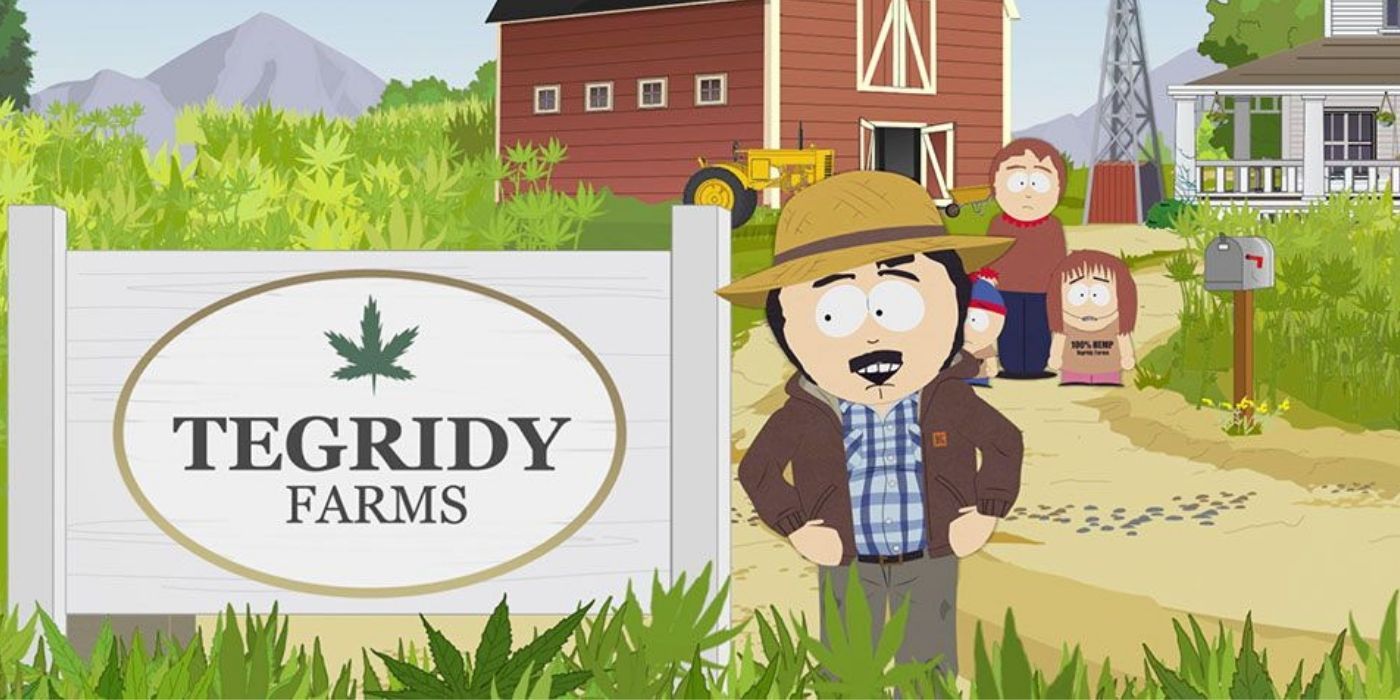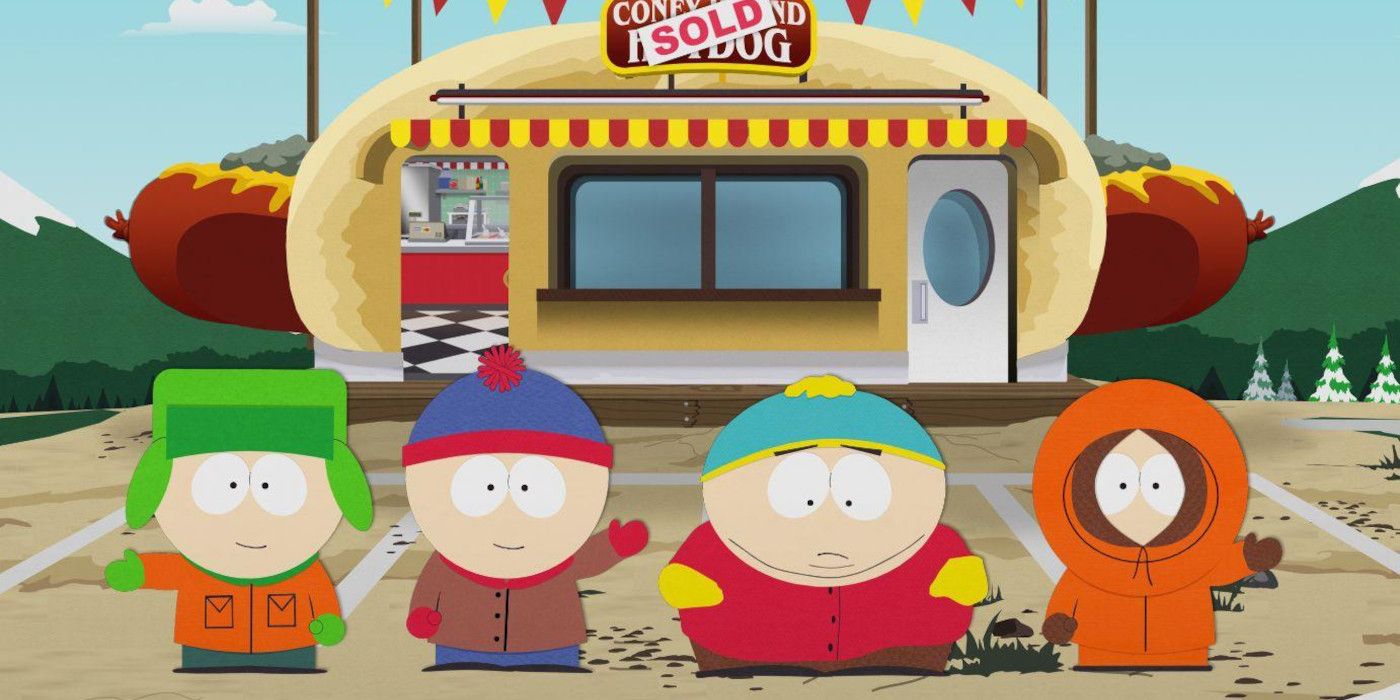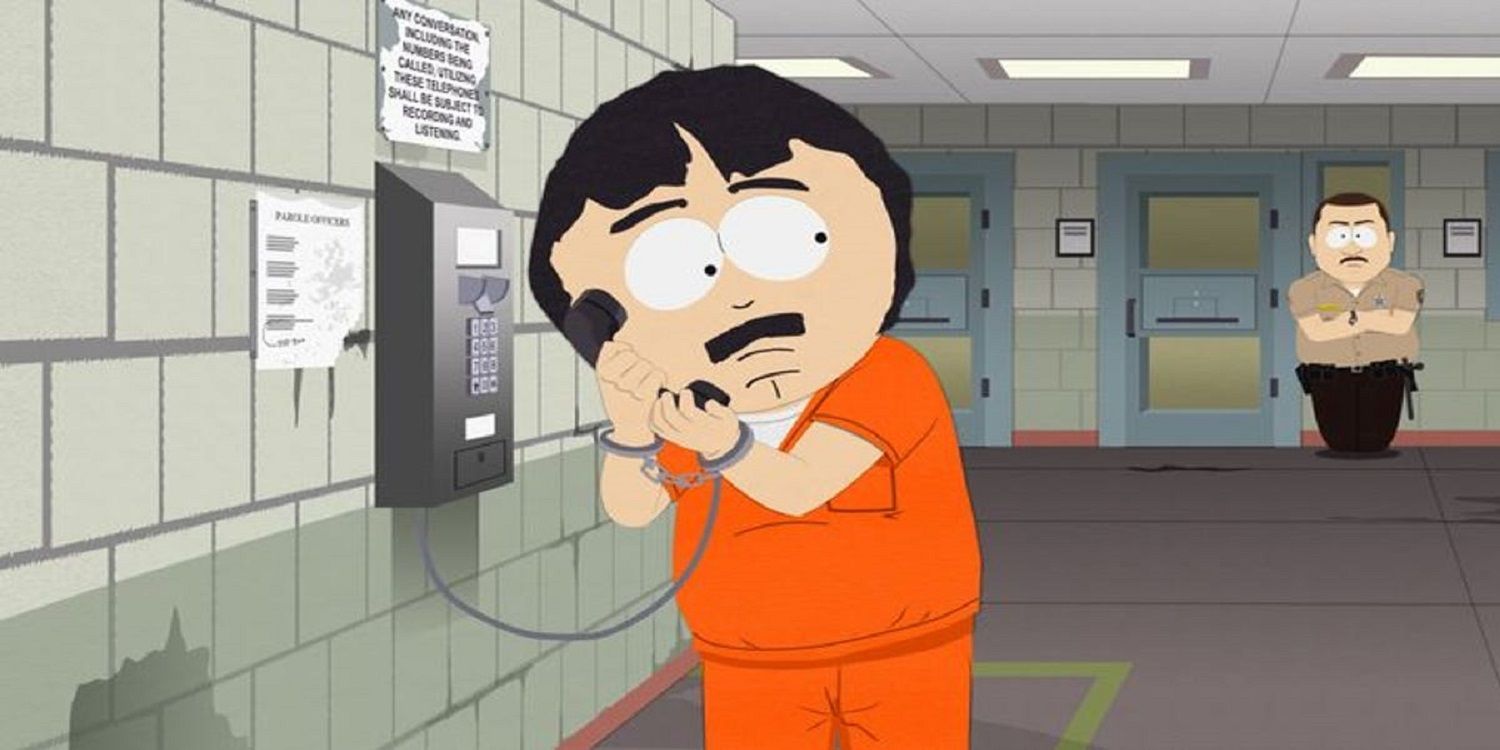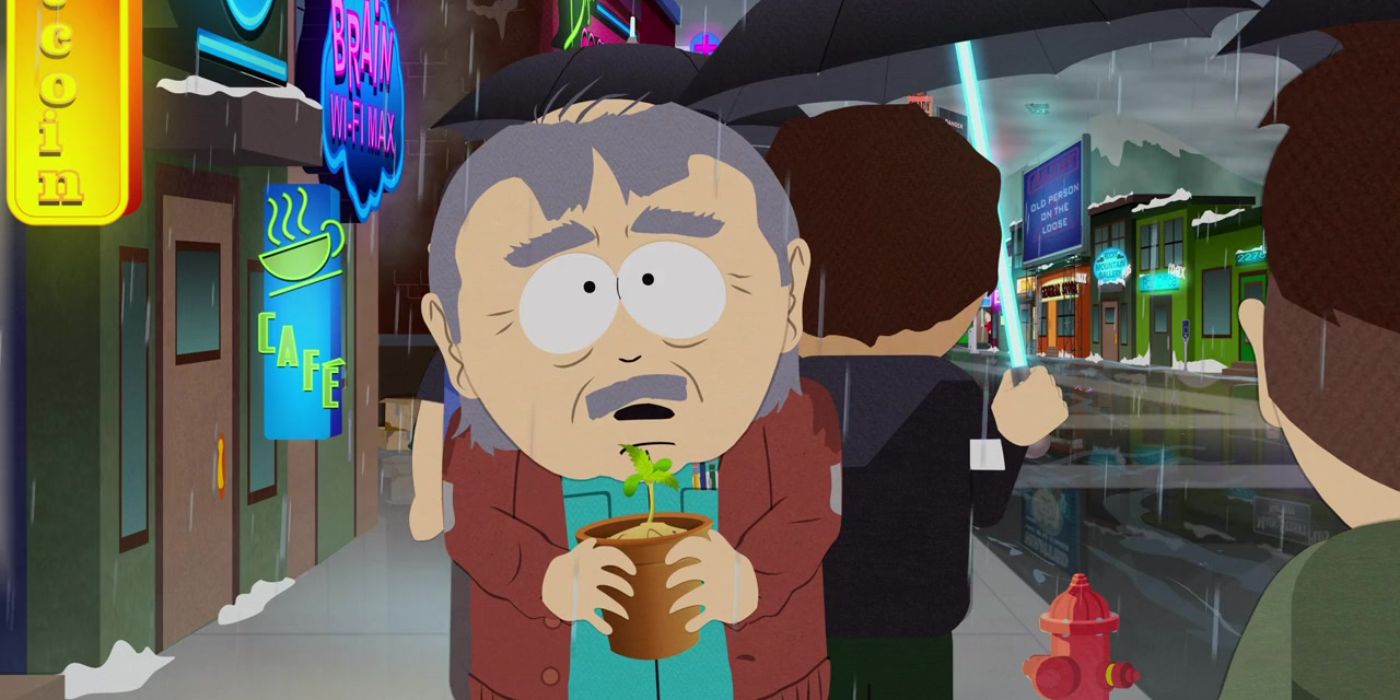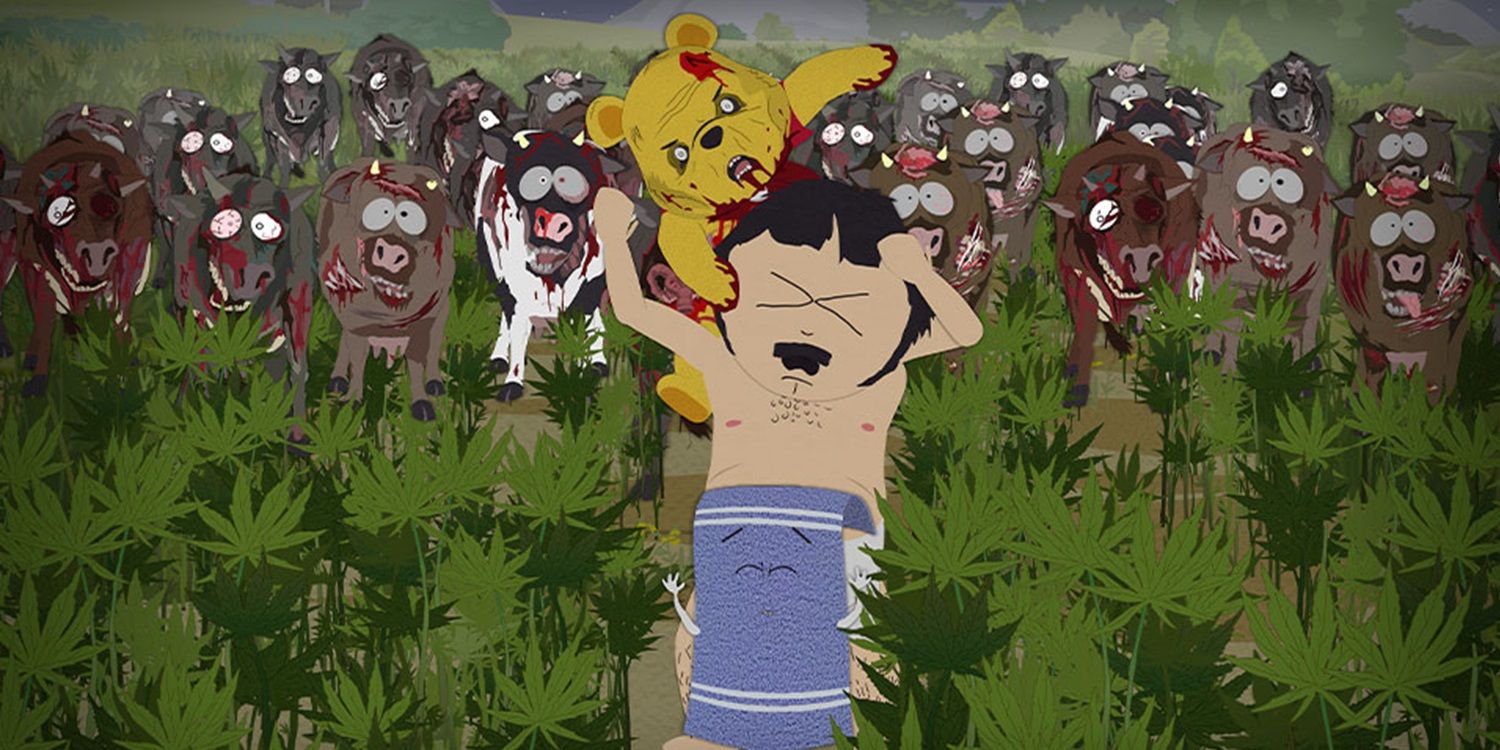Although South Park has mined some solid comedy out of Randy Marsh’s cannabis business Tegridy Farms, it is time for the series to bring its focus back to the show’s true stars, Stan, Kyle, Cartman, Kenny, and Butters. The formula of South Park has changed numerous times over the show’s 25 seasons. Early on, South Park became infamous overnight due to its bawdy, often grotesque humor, its goofy surrealism, and its surprisingly gory black comedy.
However, as South Park began to gain critical acclaim for its sharp satirical elements, the show began to transition from an anarchic black comedy into a more pointed political satire. Particularly after the success of 1999’s movie spinoff South Park: Bigger Longer and Uncut, South Park started to cover weekly events since the show’s uniquely quick turnaround allowed the series to comment on stories as they unfolded. Famously, South Park addressed the Elian Gonzalez affair and the capture of Saddam Hussein within days of these events being major news stories.
However, this was not the last time that South Park changed the show’s formula. From as early as season 9, Stan’s father Randy Marsh was singled out as a fan-favorite character who worked well as a supporting star on South Park. As a result of this popularity, when South Park began to serialize its storytelling in season 19, it was not long before the show focused on Randy’s story arcs as much as Stan, Kyle, Cartman, and Kenny’s plots. However, South Park season 25 focused less on Kyle, Cartman, and company and more on Randy and the Tegridy Farms plot to its detriment, and the show’s fixation on the ongoing story now detracts from its primary appeal. South Park, first and foremost, is unique among televised political satire for taking the perspective of children and depicting their reactions to the world’s absurdity—something that is lost when the series instead revolves around Randy.
South Park’s Kids Are The Show’s Stars
Since the series began, South Park has been acclaimed for the show’s ability to balance filthy, R-rated humor and surprisingly sweet, innocent child protagonists. Much of what made South Park work in its early seasons was the obvious dissonance between its stories (gory, gross-out plots about zombies, anal probes, and talking turds) and the protagonists (small children who, while believably sweary, were often blissfully unfamiliar with these dark, disturbing story elements). South Park’s Children of the Corn parody “The Wacky Molestation Adventure” (season 4, episode 16) provides a perfect illustration of this balance. The episode could easily have been tremendously tasteless given its premise (a group of children takes over their hometown by accusing their parents of “molester-ing” them) but became a fan favorite because the child characters are too innocent to realize what they’re accusing their parents of doing.
This joke distills the essence of what makes South Park so effective—namely, that the Comedy Central hit is a show about children, that is definitively not suitable for children. South Park’s creators Trey Parker and Matt Stone have said the series is about “kids being kids” and “what it is like to be eight years old,” something that was made more obvious as South Park began responding to current events in real-time more frequently. Thanks to the show’s extraordinarily fast production schedule, episodes like South Park’s successful Russia/Ukraine satire can channel pointed political commentary not through typically smug, cynical satirical characters, but instead through the eyes of children who are unfamiliar with the realities of adult life and therefore uniquely positioned to point out absurdities, contradictions, and hypocrisies many satirists take for granted.
How Randy Marsh Became South Park’s Lead Character
While South Park had done some creative reshuffling before (most notably with Butters replacing Kenny around season 6), Randy Marsh gradually gained more of a starring role from season 16 onwards. The initial reasoning for this was that it gave the show more stories to tell, with Randy’s status as an adult allowing him more freedom to undertake absurd quests than the elementary-age boys. However, where later South Park seasons went wrong was in making Randy the show’s primary protagonist. In season 23 (and some episodes of season 25), Randy is effectively the show’s main character, something that South Park can’t sustain since his absurd behavior becomes the plot’s focus more than the real-life events being satirized.
Why The Tegridy Farms Plot Worked In Season 22
As South Park continued to attempt its serialization experiment in seasons 21 and 22, Tegridy Farms and its satire of cannabis legalization giving rise to another gentrified cottage industry allowed the show to ground the overarching story in a plot that wouldn’t change week by week. Where South Park’s earlier attempts at serialization went wrong was when the show relied too much on current events shaking out in the way that the writer predicted. Most infamously, South Park season 20 floundered due to the unexpected outcome of the 2016 election. The Tegridy Farms story avoided this issue because the legalization of cannabis was a gradually unfolding news story that stayed in the public consciousness for more than only a week and couldn't suddenly be rendered irrelevant overnight. However, South Park’s shorter season 25 proved that even Tegridy Farms wasn’t always able to sustain itself as a satire of gentrification since Randy’s antics as a small-business owner had as much of a shelf life as any earlier long-running serialized plot the series attempted.
Why Season 23’s Tegridy Farms Story Failed
Randy was South Park’s lead for the first half of season 23 and the season finale, as well as the first Pandemic Special. While he is a funny character, one adult will never have the balanced dynamic of four kids, and the Tegridy Farms plot became grating by season 25 as a result. It didn’t help that there wasn’t much for the Tegridy Farms plot to say after the series satirized Randy’s initial opportunistic investment in the legal marijuana industry. Ironically, South Park’s best season 25 gags about gentrification came from a story of Cartman and his mother selling real estate to unthinking, zombie-like City People, meaning Tegridy Farms didn't even end up factoring into one of the show's episodes about a topic closely associated with the legal cannabis business.
Beyond drug decriminalization, gentrification is one of few relevant social issues that the Tegridy Farm plot could be used to comment on. However, in the South Park season 25 finale, the series instead used the story to make a confusing, half-baked joke about cultural appropriation, a largely irrelevant topic that barely connected to Randy’s cannabis farm. The forced plot was further evidence that the Tegridy Farms story has run its course and South Park needs to relegate Randy Marsh back to being a supporting character in season 26, ending the show’s obsession with his marijuana business in the process.

